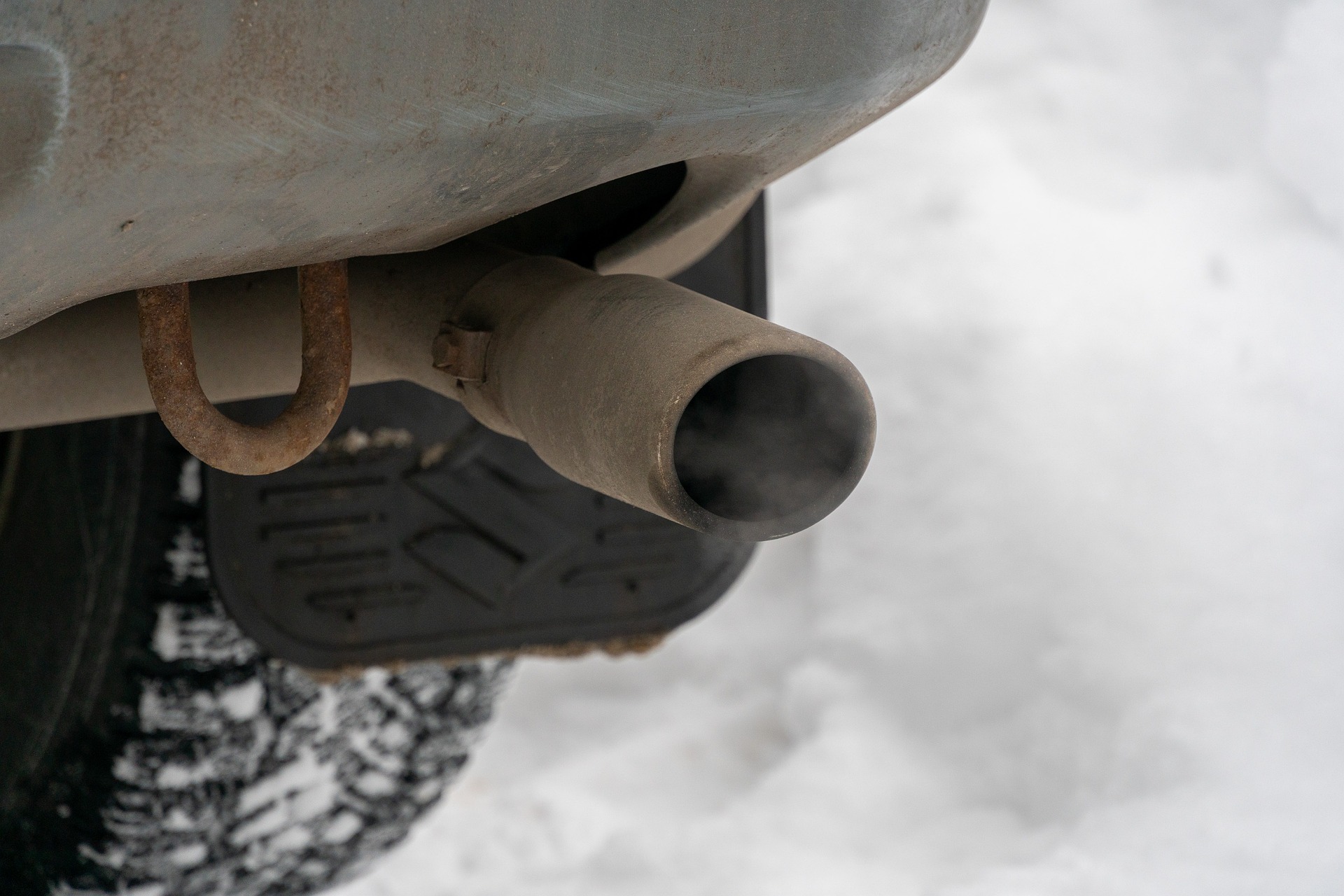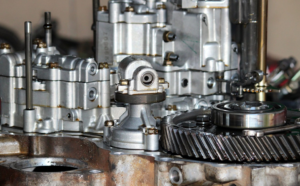Water Leaking from Car Tailpipe? Relax, It’s Part of Your Engine’s Combustion Process

Have you experienced this scenario? You just started your vehicle and you’re loading gear in the back, when you glance at the exhaust and notice drops of water falling from it. Wait, what is that? Is that new?
You furiously text your spouse or buddy: Water coming from tailpipe of car! Weird, eh? Call mechanic?
Fortunately, in nearly all cases, water leaking from a car tailpipe is perfectly normal. Here’s an explanation of why that happens due to your vehicle’s engine combustion. We’ll also take a look at situations where exhaust problems actually warrant a trip to your mechanic so that you can tell the difference between the two.
How Does Combustion Work in a Car Engine?
What is combustion?
Combustion is a type of chemical reaction where a hydrocarbon (fuel) is burned in the presence of excess oxygen. Energy is produced in different forms, like that heat that’s created by combustion if you have an oil or gas furnace, for example. In an oil lamp, the combustion reaction produces light.
In an internal combustion engine, which is what’s under the hood of your vehicle, that energy is then converted to work to move the parts of the engine and eventually turn the wheels. Most engines work in cycles comprised of four steps:
- Intake
- Compression
- Combustion and power stroke
- Exhaust
What’s the difference between gasoline and diesel combustion?
The combustion process works a little differently between gas- and diesel-powered engines. With gasoline (aka spark ignition) engines, fuel is mixed with air before it’s inducted into the engine’s cylinders. The mixture is then compressed by pistons, ignited by the sparks that follow, and combustion ensues. The gases involved in the reaction expand and push the pistons during the power stroke phase.
With a diesel engine, however, the engine only inducts air, which is then compressed. The engine sprays the diesel fuel into the heated compressed air at a desired rate, which causes ignition.
So, where does the water in your tailpipe come from?
We mentioned above that combustion is a chemical reaction. In the process of combustion, other byproducts are created, namely carbon dioxide and water, among other molecules.
You may not even see water emanating from your tailpipe most of the time, as sometimes it’s in the form of steam (evaporated water, or water in its gas form). But when it’s cold outside or the engine is still relatively cool, the water condenses into visible droplets that are noticeable. This process can be enhanced if there is any moisture left in the engine when you first start the vehicle, and it’s quickly expelled as the engine warms up.
Signs of Car Exhaust Problems
While water from your tailpipe, particularly when the engine has recently been turned over, is normal, there may be times when your exhaust system seems like it’s not functioning properly. Watch for these signs that could indicate an exhaust problem:
- Excessive exhaust fumes or black clouds coming from the tailpipe
- A burning smell coming from the engine or the rear of the vehicle
- Unusual or loud noises under the hood or coming from the exhaust
- A sudden change for the worse in your car’s fuel efficiency
- Poor engine performance, e.g., sluggish acceleration
- A visibly loose muffler or part of the exhaust system dragging on the ground
Any of these signs — on their own or in combination — mean you should take your car or truck into your mechanic’s shop to have the exhaust system and possibly the engine checked over.
Consequences of Not Fixing Exhaust Issues
It’s important not to delay your visit to the local mechanic, as procrastinating on fixing exhaust problems can have multiple negative effects.
First, a small problem can often morph into a bigger, more expensive one. For instance, if you have a leak in the engine, parts can become damaged, requiring repair or replacement. Such as a power steering fluid leak.
Second, your vehicle’s performance may suffer if there’s an issue with the engine’s combustion process or the exhaust. Not only can this slow you down or make merging on the highway difficult, but it can also result in poor fuel efficiency. Who wants to waste money by going to the service station more often?
Finally, there are environmental concerns if you ignore exhaust concerns. While emissions testing is no longer required in British Columbia, you don’t want to be producing more pollution than is recommended. Your fellow Langley residents certainly won’t appreciate it, and it can even become a safety issue in your garage, as inhaling toxic chemicals can cause a range of health dangers. Of course, the noise of a failing muffler isn’t welcome either.


